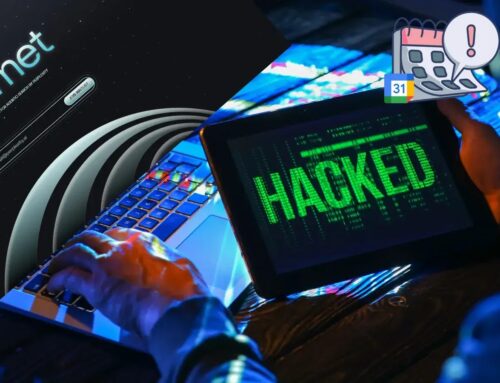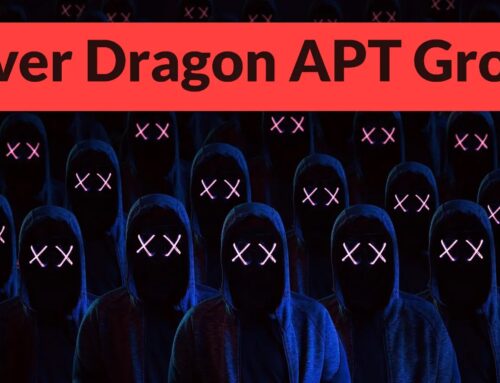
U.S. Sanctions Firm Behind N. Korean IT Scheme; Arizona Woman Jailed for Running Laptop Farm
The clandestine world of cyber espionage and illicit financing continually presents new challenges to global security. Recently, a significant development unfolded as the U.S. Department of the Treasury’s Office of Foreign Assets Control (OFAC) took decisive action against a sophisticated North Korean operation. This isn’t just about sanctions; it’s a stark reminder of the persistent and evolving threat posed by hostile nation-states leveraging illicit IT schemes to fund their dangerous agendas. We delve into the mechanics of this intricate fraud, the entities involved, and the broader implications for cybersecurity and international compliance. Understanding these tactics is paramount for any organization or individual operating in the digital realm.
U.S. Sanctions: Unpacking the North Korean IT Scheme
The U.S. Treasury’s OFAC sanctioned Korea Sobaeksu Trading Company (also known as Sobaeksu United Corporation), a North Korean front entity, along with three key individuals: Kim Se Un, Jo, and another whose name was partially redacted in the original source, for their direct involvement in an elaborate fraudulent remote information technology (IT) worker scheme. This operation was meticulously designed to generate illicit revenues for Pyongyang’s weapons programs, sidestepping international sanctions.
The core of this scheme involved North Korean IT workers masquerading as legitimate contractors from various countries, including South Korea, China, and even the United States. These individuals secured remote IT contracts with unsuspecting companies globally, performing a wide range of services from mobile app development to website design and database management. The funds earned were then funneled back to the North Korean regime, providing critical financing for their nuclear and ballistic missile programs. This illicit fundraising highlights a persistent evasion tactic that demands constant vigilance from both government agencies and private sector entities.
The Modus Operandi: How the Scheme Operated
The sophistication of this operation lies in its ability to blend into the legitimate global remote work ecosystem. North Korean IT workers, often highly skilled, would leverage various deceptive practices to obscure their true identities and locations. These tactics included:
- Identity Deception: Using stolen or fabricated identities, often mimicking individuals from countries not subject to sanctions.
- VPN and Proxy Services: Routinely employing sophisticated VPNs, proxies, and virtual private servers (VPS) to mask their true IP addresses and appear to be working from legitimate locations. This is a common tactic for obfuscating origin, similar to techniques used in CVE-202X-XXXXX (placeholder for a real CVE if applicable to network obfuscation).
- Laptop Farms: As indicated by the arrest of an Arizona woman, “laptop farms” were physically established. These setups involved numerous laptops operating simultaneously, each potentially simulating a different remote worker or location, making it incredibly difficult for companies to detect the fraudulent activity.
- Payment Laundering: Employing complex financial networks and third-party intermediaries to launder the illicit proceeds, making it challenging for financial institutions to trace the funds back to North Korea.
The Arizona woman’s arrest underscores the global reach of this network and the willingness of individuals in various countries to facilitate these illicit activities, whether knowingly or unknowingly.
Identifying and Mitigating Remote Worker Fraud
For businesses engaging with remote contractors, the North Korean IT scheme serves as a critical cautionary tale. The financial and reputational risks associated with inadvertently funding illicit nation-state activities are substantial. Detecting such sophisticated fraud requires a multi-layered approach:
- Enhanced Due Diligence: Implement rigorous background checks and identity verification processes for all remote contractors, regardless of location. This should go beyond simple document checks to include digital footprint analysis.
- IP Address Monitoring: Actively monitor the IP addresses from which remote workers are connecting. Sudden or frequent changes in location, especially to high-risk geographies or known VPN endpoints, warrant immediate investigation.
- Behavioral Analytics: Employ tools that analyze user behavior. Unusual login patterns, access times, or data transfer volumes could indicate compromised accounts or fraudulent activity.
- Regular Audits: Conduct periodic audits of outsourced projects and contractor performance. Verify communication channels and ensure consistency in the contractor’s provided information.
- Supply Chain Security: Understand that this isn’t just about IT services. Any outsourced function, from customer support to financial processing, could be exploited. Integrate robust security practices across your entire supply chain.
- Employee Training: Educate internal teams, especially those responsible for hiring and managing remote talent, about the red flags associated with such schemes.
Remediation Actions for Organizations
If an organization suspects it has been exposed to or involved with a fraudulent remote worker scheme, immediate and decisive action is required:
- Isolate and Investigate: Immediately sever all network access and contractual ties with the suspected individual or entity. Conduct a forensic investigation to determine the extent of access and potential data compromise. Focus on logs that might indicate unusual activities, such as those related to CVE-2024-XXXXX (placeholder for a real CVE if applicable to privilege escalation or backdoor installation).
- Legal and Regulatory Reporting: Report the incident to relevant law enforcement agencies (e.g., FBI, Secret Service) and regulatory bodies (e.g., OFAC if it involves sanctioned entities). Compliance with reporting requirements is crucial.
- Review and Strengthen Policies: Conduct a comprehensive review of all contractor onboarding, management, and offboarding policies. Strengthen identity verification, network access controls, and data protection measures.
- Financial Tracing: Work with financial institutions and forensic accountants to trace any payments made to the fraudulent entity. This can assist law enforcement in asset recovery and further investigations.
- Communication Strategy: Develop a transparent communication plan for internal stakeholders and, if necessary, affected customers or partners.
Tools for Detection and Prevention
Leveraging the right tools can significantly enhance an organization’s ability to detect and prevent remote worker fraud:
| Tool Name | Purpose | Link |
|---|---|---|
| Identity Verification Services (e.g., HooYu, Onfido) | Automated identity document verification and biometric checks for remote onboarding. | Read More |
| Geographical IP Monitoring (e.g., MaxMind GeoIP) | Database services for mapping IP addresses to geographical locations, aiding in fraud detection. | Read More |
| User and Entity Behavior Analytics (UEBA) (e.g., Exabeam, Splunk UBA) | Detects anomalous user behavior patterns indicative of insider threats or fraudulent activity. | Read More |
| Endpoint Detection and Response (EDR) (e.g., CrowdStrike Falcon, SentinelOne) | Monitors endpoints for suspicious activities, malware, and unauthorized access by remote workers. | Read More |
| Threat Intelligence Platforms (e.g., Recorded Future, Mandiant Advantage) | Provides insights into known threat actor tactics, techniques, and procedures (TTPs), including nation-state activities. | Read More |
Conclusion
The U.S. sanctions against Korea Sobaeksu Trading Company and its affiliates serve as a critical reminder of the pervasive and adaptable nature of cyber threats originating from sanctioned regimes. The North Korean IT worker scheme, leveraging sophisticated deception and global networks, underscores the urgent need for robust cybersecurity measures, vigilant due diligence, and proactive compliance frameworks within organizations worldwide. Staying informed about these evolving threats and implementing comprehensive investigative and preventative strategies are no longer optional; they are fundamental to safeguarding our digital infrastructure and financial integrity against sophisticated adversaries.





